COVID-19 (2022 Deadline)
Scaling cost-effective, safe, and quality black soldier fly insect larvae enterprise for COVID-19 livelihood resilience in Uganda
PI: Deborah Ruth Amulen (amulendeborah@gmail.com), Makerere University
U.S. Partner: Jennifer Pechal, Michigan State University
Project Dates: November 2022 - April 2024
Project Overview 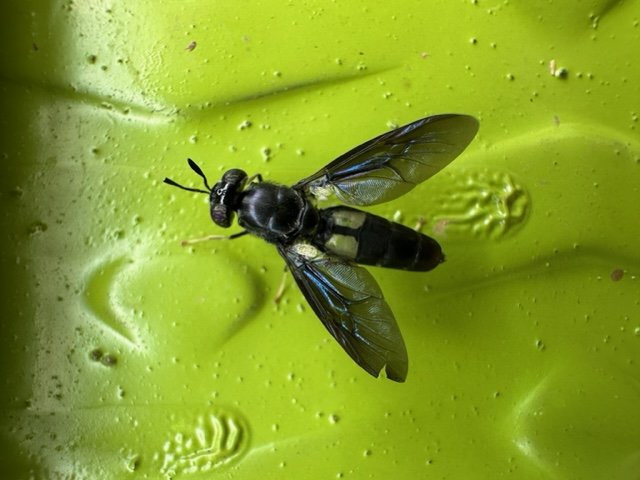 | | Black Soldier Fly. Photo courtesy Lina Stankute Alexander (NAS), Uganda |
The black soldier fly larva (BSFL) is recognized as one of the most environmentally friendly sources of insect protein for animal production. Researchers have demonstrated that BSFL is highly nutritious, making it a potential replacement for more expensive animal-protein feed ingredients. In Uganda, BSFL farming is growing rapidly despite a myriad of challenges. The Centre for Insect Research and Development (CIRD) has piloted small-scale commercial BSFL farming under the leadership of the principal investigator on this project, Dr. Amulen. The major milestones achieved by CIRD includes setting up a small-scale BSFL unit producing one ton of BSFL weekly, supporting establishment of 100 BSF farming business, establishing market channels for both BSF equipment and breeding seeds such as eggs and pupae, and creating demand for dry BSFL among poultry and pig farmers.
However, a number of scientific questions were asked by the Center’s farmer clients. These included questions about the nutritional content of the BSFL produced, the mixing ratio for BSFL with other feed ingredients, the growth rate or performance of chickens fed on BSFL-based poultry feed, and the safety and quality of BSFL produced for chicken and consumers. The farmers also struggled with the lack of a designated market or supply system for BSFL farming equipment or inputs. This PEER project sought to address these technical questions while supporting more than 100 youths and women BSFL farmers to profitably earn money from BSFL as a COVID-19 resilience strategy in Uganda.
Final Summary of Project Activities
The PEER project’s launch event was attended by high-level stakeholders, including the Commissioner of Entomology and his staff at the Ministry of Agriculture Animal Industry and Fisheries (MAAIF). The event attracted media attention, including an article in the Monitor newspaper and a local radio show interview. The researchers subsequently undertook an assessment of the impact of COVID-19 on livestock feed protein sources and mapped actors in the BSF value chain in peri-urban Kampala. They conducted two surveys with 256 respondents on the value chain. The team also began work on assessing the quality and safety of BSF larvae reared with an eye on providing practical measures for safe post-harvest handling practices. They piloted a cost-effective production model of BS by reviewing different production and marketing models and conducting a Cost-Benefit Analysis by incorporating agricultural economist partners from Gulu University Uganda.
The PEER team conducted a range of trainings, after which they began offering continuous support to 100 women and youth in commercial black soldier fly rearing, assisted by the entire CIRD community of practice and other technical support services. The team also provided safety kits and information about how to work with organic waste to 30 women organic waste collectors and conducted business coaching clinics for 40 BSF farmers. The project also supported training four students and lab laboratory technical staff at Makerere University on the use of Atomic Absorption Spectrophotometry (AAS) and funded one Master’s student involved in the field study. The CIRD was expanded as a one-stop knowledge center, including improving their commercial BSFL farming training manual to include personnel and environmental safety measures. The Center has launched monthly technical support meetings and conducted online and one-on-one coaching services.
The project PI met with the Parliament Committee of Agriculture to submit views on integration of black soldier fly in the new animal feeds bill, and used project data to justify why the BSF value chain should be included in a new World Bank project about Ugandan agriculture. Two manuscripts on their findings are forthcoming, and in the meantime the team presented their work in a variety of conferences and meetings, including the Excellence in Insect Science conference, as well as to representatives of the governments of Denmark and Saudi Arabia. 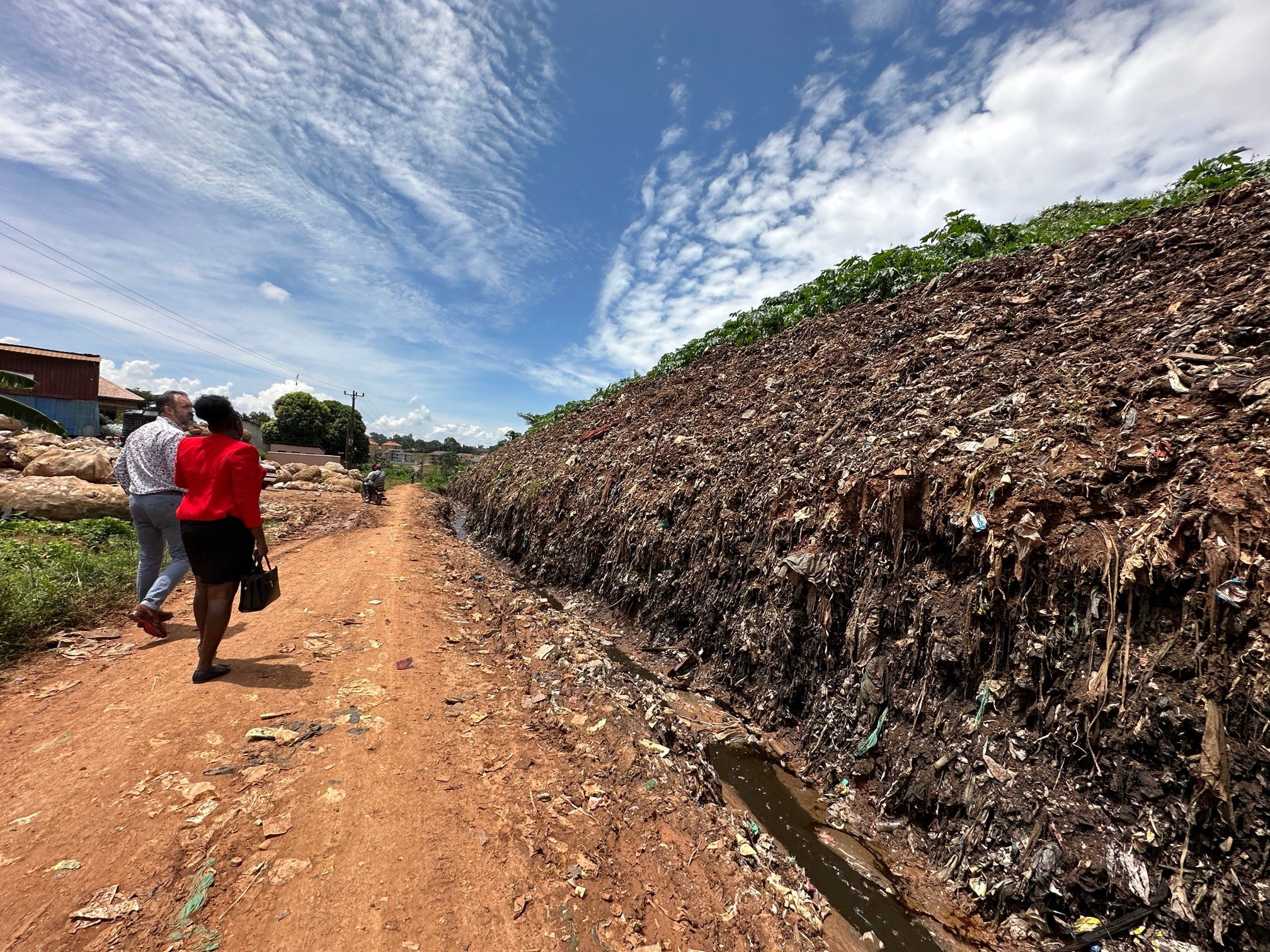 | 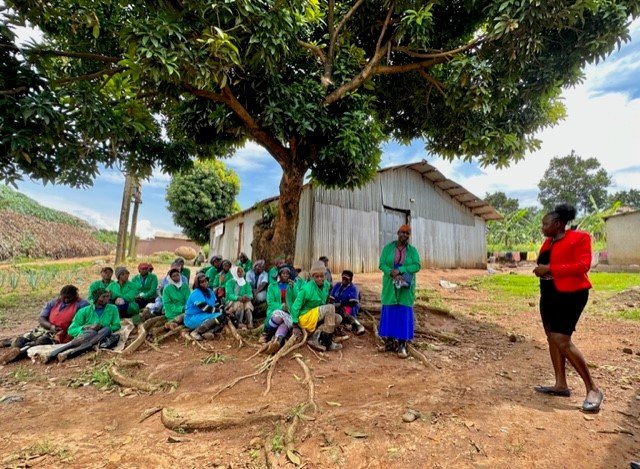 | | USAID and NAS visit trash collection sites. Photo credit: Lina Stankute Alexander (NAS) | |
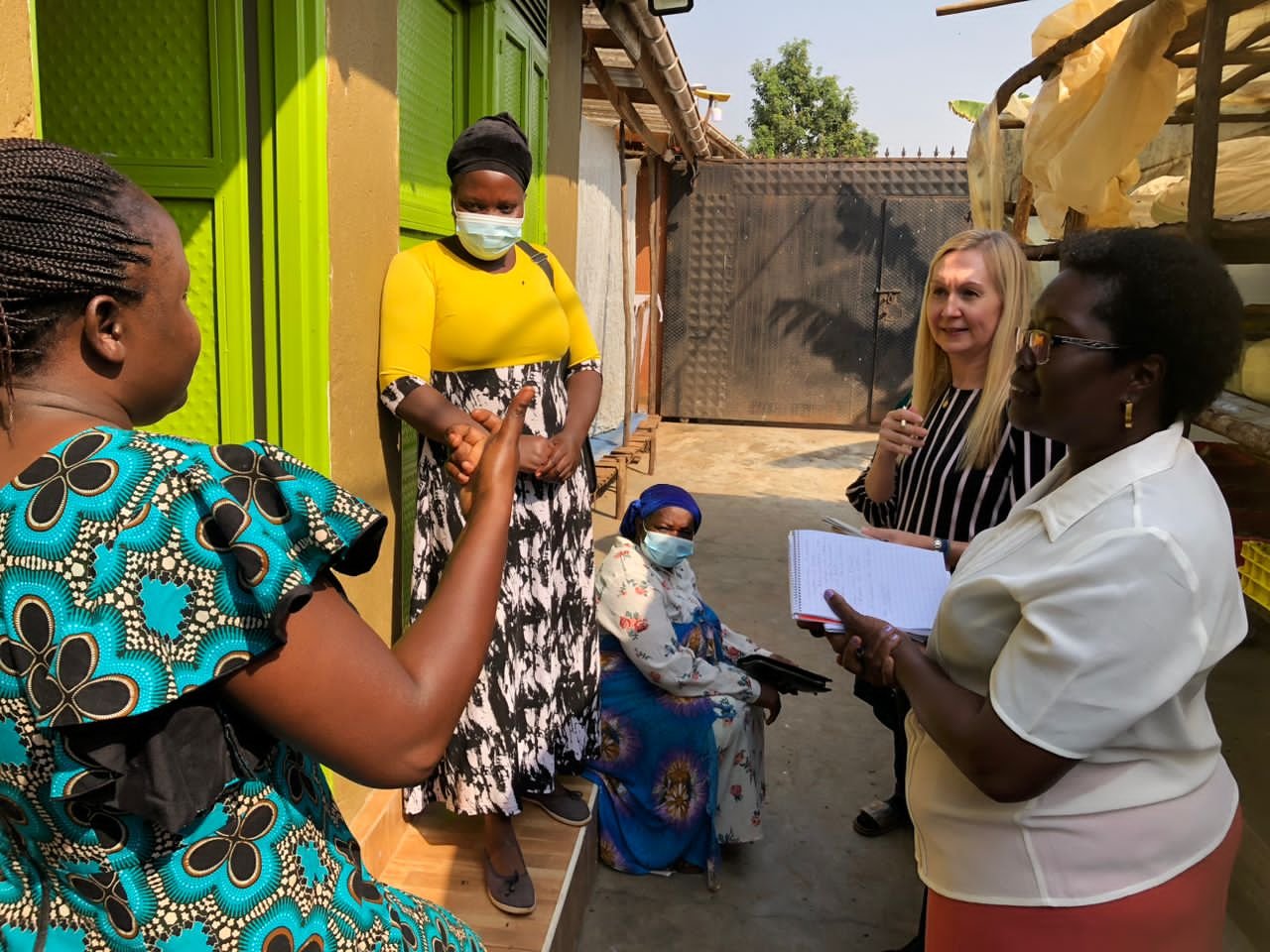 | ]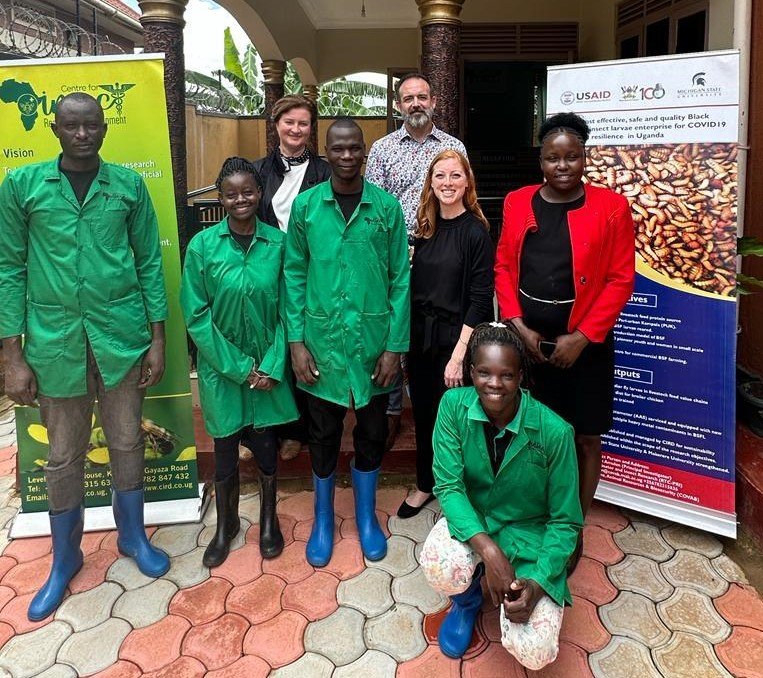 | | USAID environmental officer's visits the team in Uganda, February 2023. Photo credit: Lina Stankute Alexander (NAS) | USAID and NAS representatives visit the project in May 2023
|
Back to PEER COVID-19 Grant Recipients
| 







